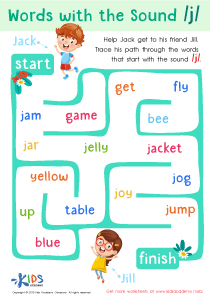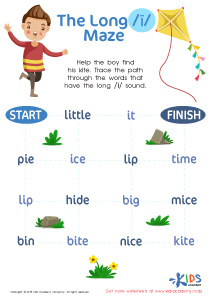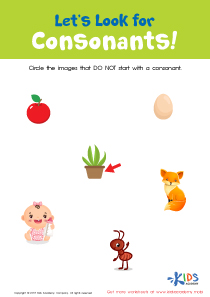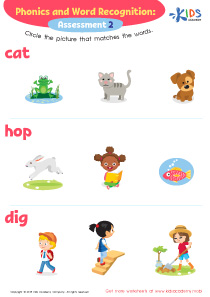Extra Challenge Rhyming Worksheets for Ages 4-8
3 filtered results
-
From - To
Discover our "Extra Challenge Rhyming Worksheets" designed specifically for children aged 4-8! These engaging printable resources help young learners develop phonemic awareness and enhance their vocabulary through enjoyable rhyming activities. Each worksheet features fun illustrations and varied tasks that encourage kids to identify, match, and create rhymes, fostering creativity while reinforcing essential language skills. Perfect for educators and parents, our worksheets cater to early grade students ready for an extra boost in their learning journey. Whether used in the classroom or at home, these rhyming challenges make practicing literacy skills both enjoyable and effective! Explore our collection today!
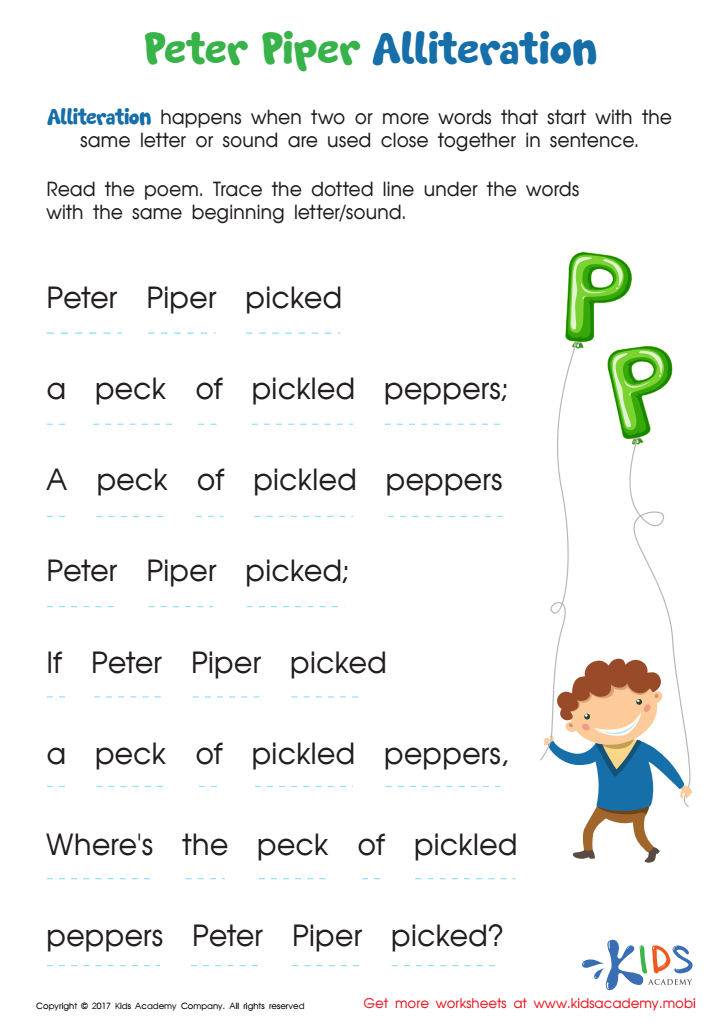

Peter Piper Alliteration Worksheet


Baa Baa Black Sheep Printable
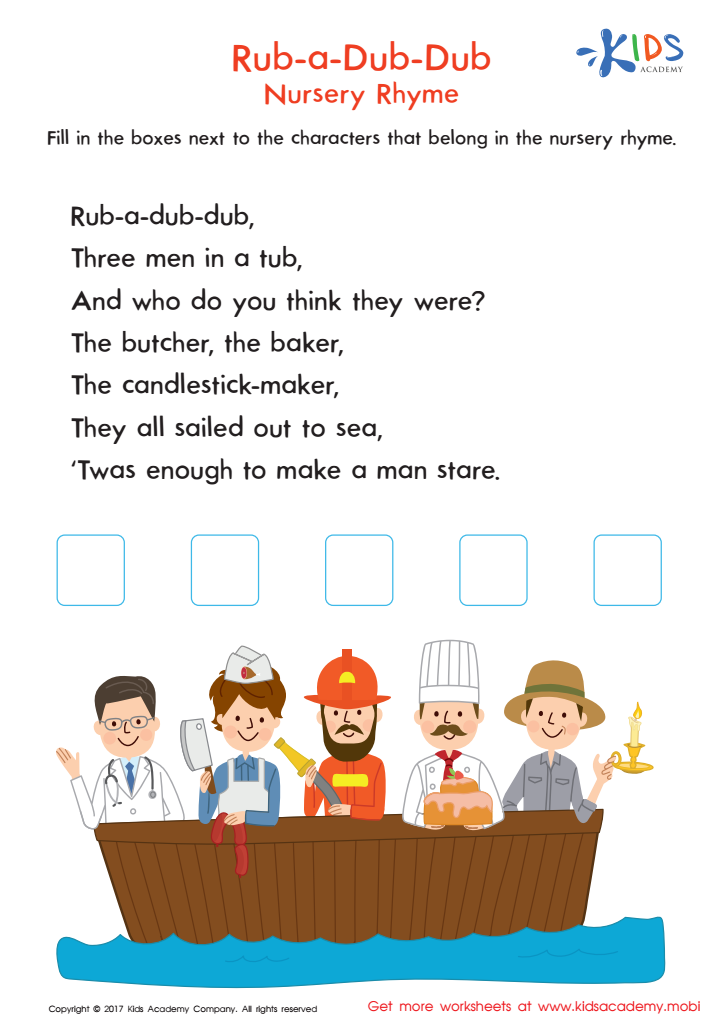

Rub a Dub Dub Printable
Extra Challenge Rhyming for Ages 4-8 is an essential activity that caters to both educational and developmental needs of young children. Engaging in rhyming exercises stimulates literacy skills, enhancing phonemic awareness—the ability to recognize and manipulate sounds in words. This is crucial for developing reading and writing skills, as children begin to decode language patterns.
Moreover, rhyming fosters creativity and expression. It encourages children to experiment with language, play with words, and explore sounds, helping them to build a stronger vocabulary. Rhyming activities can also cultivate listening skills and auditory discrimination, making it easier for children to understand spoken language nuances.
Additionally, the social aspect of rhyming—whether through songs, poems, or playful verbal exchanges—nurtures communication skills and teamwork. It often leads to shared laughter and bonding moments, which are vital for emotional development.
For parents and teachers, incorporating Extra Challenge Rhyming into their routines not only reinforces educational foundations but also makes learning enjoyable and engaging. This playful approach to language can instill a lifelong love for reading and learning, ensuring that children transition smoothly into more complex literacy tasks as they grow. It sets the stage for future academic success and a positive attitude toward learning.
 Assign to My Students
Assign to My Students












